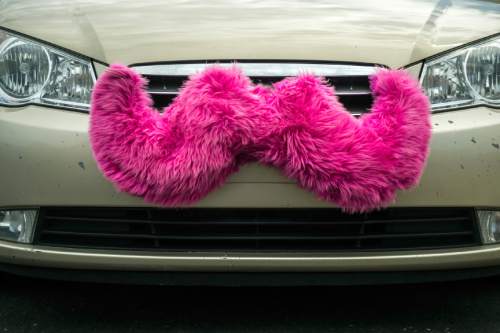This is an archived article that was published on sltrib.com in 2014, and information in the article may be outdated. It is provided only for personal research purposes and may not be reprinted.
The future looks fuzzy for Uber and Lyft after the Salt Lake City Council unanimously amended its transportation ordinance Tuesday in the face of opposition from those rideshare companies.
The question now is, will they continue to operate, whether it's inside or outside the law?
The amendments to the city's ground transportation ordinance did away with the 30-minute wait period for limousines and the $30 minimum fare charge — things the rideshare companies had requested.
And the council loosened slightly its liability requirements but still mandates a $1.5 million indemnification of drivers and passengers when rideshare cars are available or being used.
Although several council members voiced support for the rideshare services, they said public safety was paramount. As such, it kept its requirements for city driver background checks and vehicle inspections.
"There are standards that must be in place that are consistent across the board," said Council Chairman Charlie Luke, referring to taxis and other commercial transportation businesses.
Those regulations were opposed by Uber and Lyft as too onerous because the companies say they already provide those requirements.
In an interview earlier this month, Lyft spokesman David Mack said it would be difficult to attract drivers if the requirements were too much of a hassle. Many rideshare drivers are part-time.
"If the City Council votes for the [amendments to] the ordinance we don't have any plan to go through licensing because it wouldn't allow the model to succeed," Mack said.
At a rally Monday outside City Hall, Tim Berry, of Lyft, said no matter which way the council voted, the rideshare company would remain in Salt Lake City.
Since early this year, Lyft and Uber have operated illegally in Salt Lake City. Rideshare drivers have been cited on numerous occasions but most tickets have been warnings. Earlier, the Tribune reported that the rideshare companies were paying the citations issued to their drivers.
Nonetheless, both Uber and Lyft insist they are not transportation companies, but rather only provide a platform by which freelance drivers can coordinate with would-be riders.
The rideshare phenomenon has swept across the country. Uber and Lyft operate legally in some municipalities, while other cities continue to wrestle with how to regulate them.
Lyft's Mack said that rideshare is an emerging transportation system that should not be burdened by last century's regulations.
"Many states and cities realize a different model requires different rules," he said.
Despite the amendments, David Everitt, chief of staff for Mayor Ralph Becker, said rideshare continues to change rapidly and the city should continue to work toward agreement with Uber and Lyft on regulation. "We will continue to streamline our process," he said.
Lyft driver Angie Palmer said although the council voted in favor of the amendments opposed by Lyft and Uber, she was encouraged.
Palmer said she could not comment on whether Lyft would continue to operate illegally.
"The city wants us here," she said. "We have more work to do and hopefully we'll work it out."



